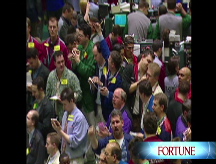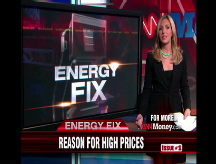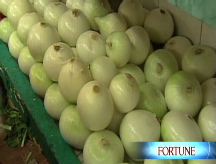House panel debates speculation curbs
House Agriculture panel hears testimony from lawmakers offering measures to curb 'excessive' speculation.
NEW YORK (CNNMoney.com) -- Some of the Democratic lawmakers leading the campaign to crack down on oil traders appeared Wednesday before the House Committee on Agriculture to explain their proposals.
A dozen or so bills have been introduced on the subject of oil speculators, and Democratic leaders in the House have promised to address the issue by tackling what they call "excessive" speculation.
But some Congressmen are skeptical that the legislation will do any good - and could even cost consumers more by driving up the price of other commodities such as corn and soybeans.
"Given that charges against speculators have historically been more wrong than right, it is important that we have the facts, data and analysis that demonstrate the validity of this contention before we take action," said committee chairman Collin Peterson, D-Minn. "Any legislative remedy that seeks to remove speculative interests from futures markets could result in more volatile markets, as the role of speculators has always been vital for price discovery and liquidity."
The slew of speculation-tackling bills that have not yet faced a vote address a variety of issues.
Some have bipartisan support, such as one increasing the Commodity Futures Trading Commission's (CFTC) budget, and some are more contentious, such as limiting over-the-counter trades to producers and boosting traders' margin requirements.
If applied to all commodity traders, some lawmakers say the propositions may have unintended consequences on other markets.
"Increasing margin requirements, for example, would be very problematic, as volatility in the futures prices of the grains ... has already made it tough for elevators in farm country to meet margin calls," Peterson said. "Such instability can have serious effects on the prices we pay at the supermarket."
But other lawmakers are convinced that curbing excessive speculation by expanding the role of CFTC will help reduce oil and fuel prices for consumers.
"While some have advocated for doing nothing and others believe that we should simply bar index investors and others from the energy commodity markets altogether, I believe what we really need is a level playing field that is transparent and accountable," said Rep. Jim Matheson, D-Utah. "Our goal should be to make sure that the regulator - the CFTC - has the ability to ensure undue manipulation isn't taking place in the markets."
Though many lawmakers are still unconvinced that speculation plays a role in higher gas prices due to a lack of concrete evidence, other Congressmen say the circumstantial evidence is enough reason to act.
"In light of the dramatically increased speculative inflows into the energy futures markets ... coinciding with a staggering 1,000% jump in the price of a barrel of oil, I believe the burden is on those who would argue for maintaining the status quo," said Rep. Chris Van Hollen, D-Md.
"Proponents of maintaining current law must definitively demonstrate that the exceptions we have thus far permitted to persist in the Commodities Exchange Act do in fact support the primary functions of price discovery and offsetting price risk necessary for a healthy energy futures marketplace," Van Hollen added.
Since 2003, the volume of investment funds in commodity markets - especially oil - has risen from about $15 billion to $260 billion, according to the International Energy Agency (IEA), an influential oil-policy group.
But the IEA released a report last week arguing that the increase in oil-market speculation is not driving up crude prices.
"There is little evidence that large investment flows into the futures market are causing an imbalance between supply and demand, and are therefore contributing to high oil prices," the report said.
But the study far from ends the debate.
"A growing chorus of congressional testimony and market commentary from a wide range of credible and authoritative sources has concluded that the run-up in today's price of oil cannot be explained by the forces of supply and demand alone," said Van Hollen.
Even analysts who concede that the laws of supply and demand are the main contributors to record oil prices say that speculation can make price swings more volatile.
The House Agriculture panel has planned hearings Thursday and Friday to further discuss the issue of amending the Commodity Exchange Act. ![]()





